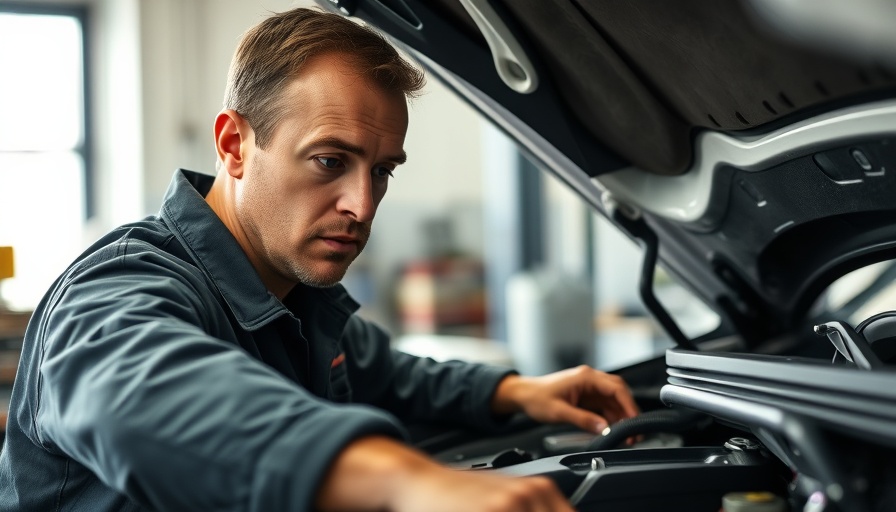
The Importance of Regular Car Maintenance
For anyone who relies on their vehicle for daily transportation, understanding the importance of regular car maintenance can save you time and money. Just like following a healthy lifestyle can enhance your well-being, adhering to a car maintenance schedule can prolong a vehicle's life and optimize its performance. While many repairs may seem daunting, they could prevent major breakdowns down the line.
Common Repairs Throughout the Mileage Lifecycle
Cars undergo various wear and tear as they accumulate mileage, and there are specific repairs that become increasingly common at different intervals. For instance, most batteries have a lifespan of 30,000 to 50,000 miles. Experts suggest routinely checking the battery’s status during oil changes and preemptively replacing it every three years to avoid unexpected failures.
Another notable repair is replacing coolant hoses. Once you flush the cooling system, it’s a perfect time to replace hoses, which generally need attention every five years or 50,000 miles due to the natural degradation caused by extreme temperatures over time.
Prioritizing Spark Plug Replacements
Too often, drivers overlook spark plug maintenance. Depending on their materials—whether copper, platinum, or iridium—spark plugs can last anywhere from 30,000 to 100,000 miles. Regular inspections can go a long way; if you notice symptoms like rough idling or backfiring, proactively checking and replacing spark plugs can greatly enhance your engine's efficiency and longevity.
The Timing Belt: A Critical Component
The timing belt is yet another crucial part that requires strategic attention. Recommendations for replacement frequency can vary widely from as low as 30,000 miles to as high as 120,000 miles. It is wise to replace the water pump whenever you change the timing belt, even if it appears functional. Many issues affecting timing belts, such as engine misfires or the sound of ticking and squealing, often don’t present themselves until serious damage is on the line.
Building a Relationship with Your Mechanic
Developing a rapport with a trusted mechanic can drastically improve your car maintenance experience. Just like consulting a healthcare professional for your medical needs, having a mechanic who understands your car intimately can provide the insight necessary to tailor maintenance schedules and job priorities to your specific vehicle's history and condition.
Frequently Overlooked Insights on Car Repairs
Many drivers believe that if their vehicle seems to run fine, there is no need to pay attention to scheduled maintenance. However, keeping a schedule ensures that parts are replaced before they fail, avoiding unexpected problems altogether. A car left unchecked can turn minor repairs into significant expenses, costing drivers significantly more.
Conclusion: Take Control of Your Car’s Health
The key to enjoying a hassle-free driving experience lies in active participation in your car’s upkeep. By being proactive – whether it’s changing spark plugs, monitoring your battery, or ensuring regular coolant flushes – you are not just enhancing your vehicle's performance but also contributing positively to your own peace of mind. Remember, investing in maintenance now can lead to fewer unexpected repairs in the future!
 Add Row
Add Row  Add Element
Add Element 


 Add Row
Add Row  Add
Add 

Write A Comment